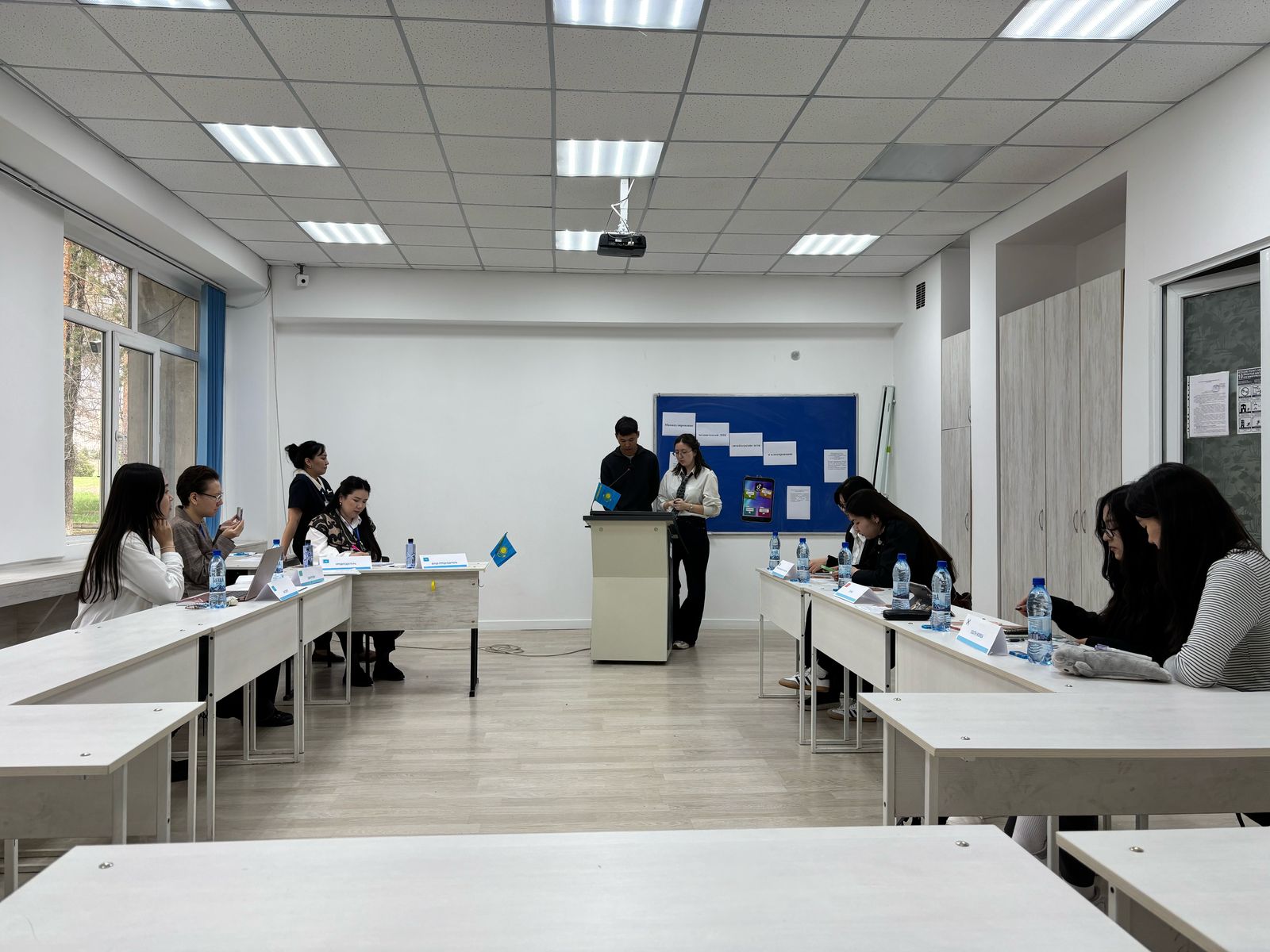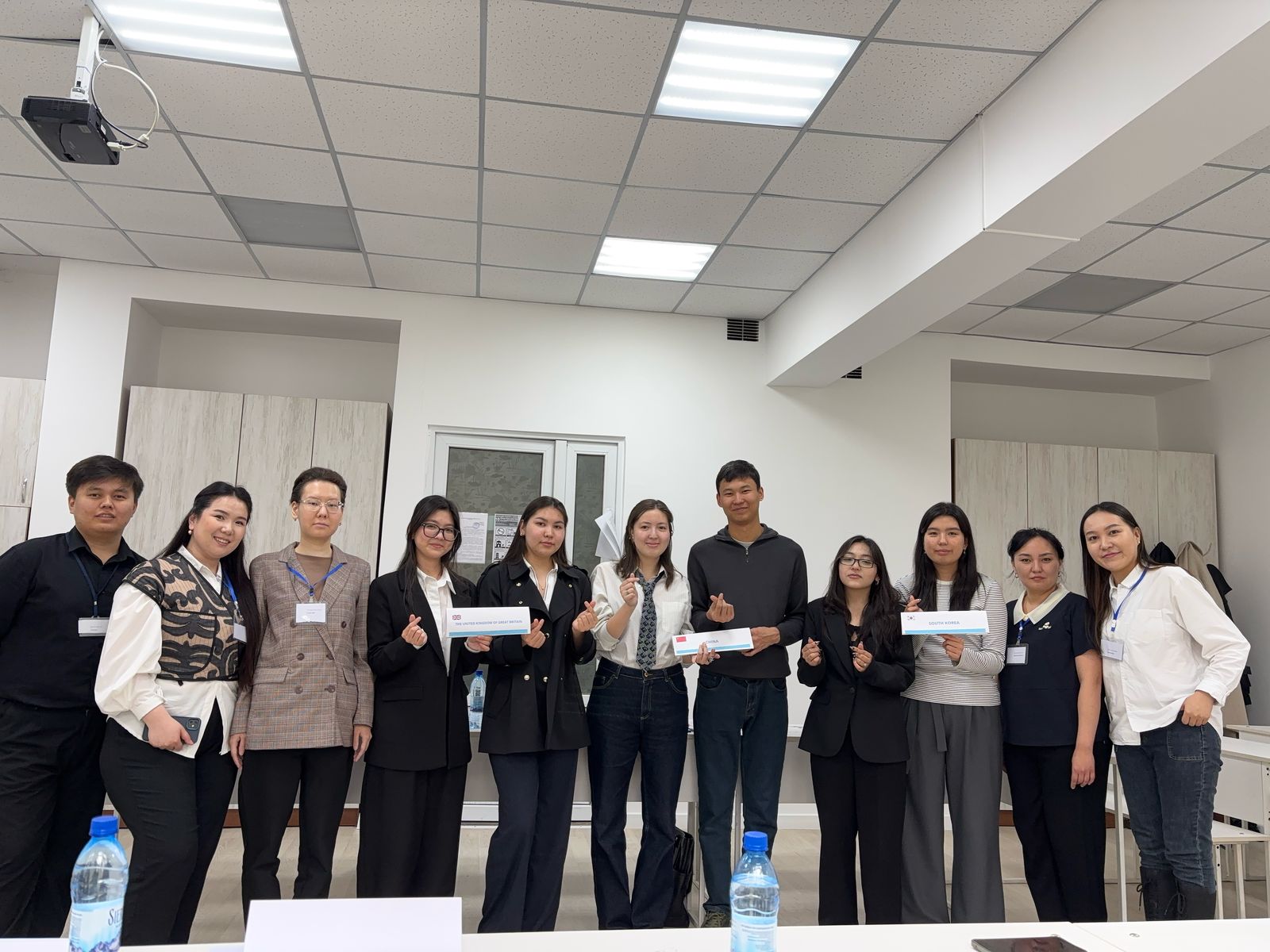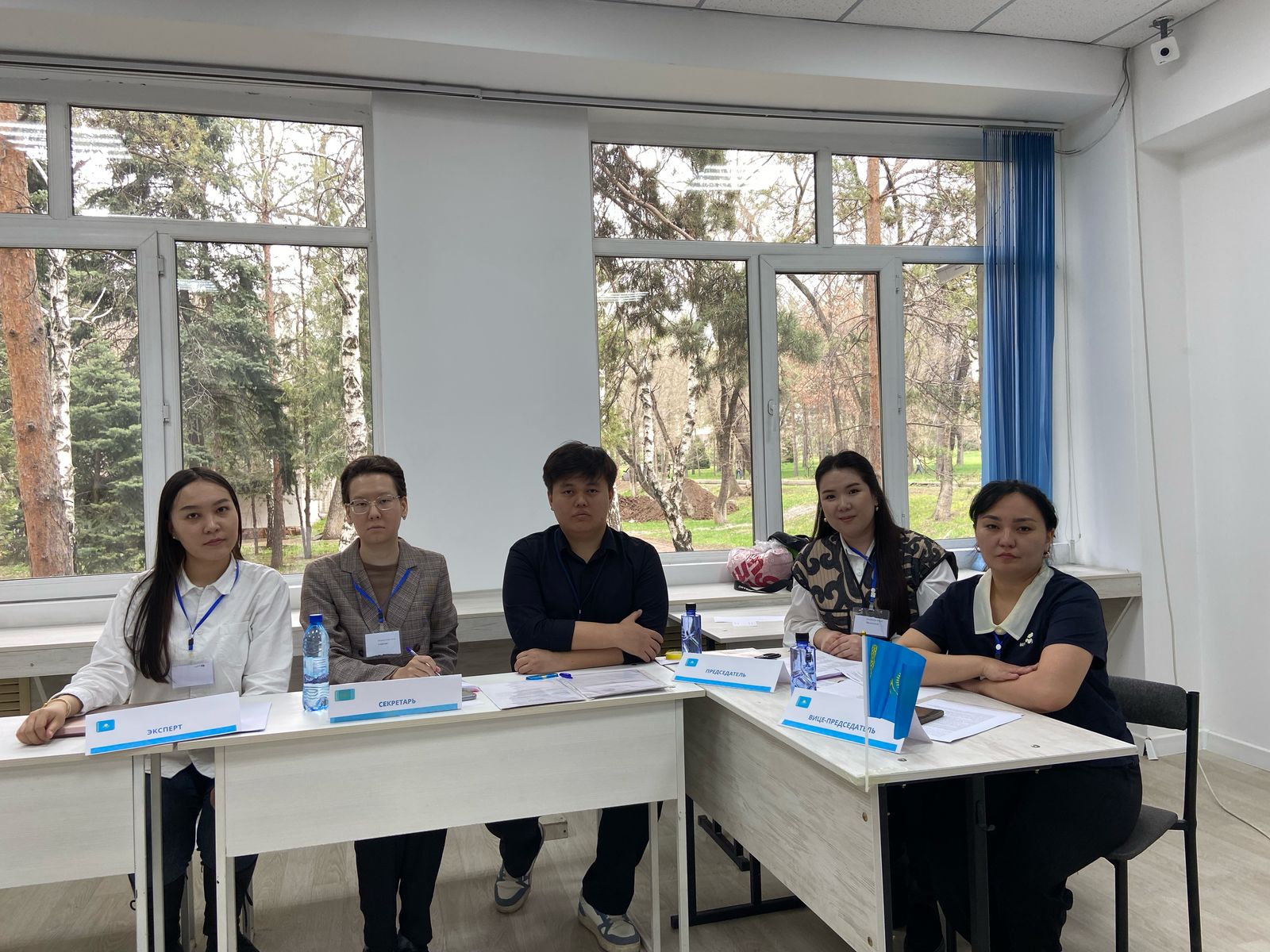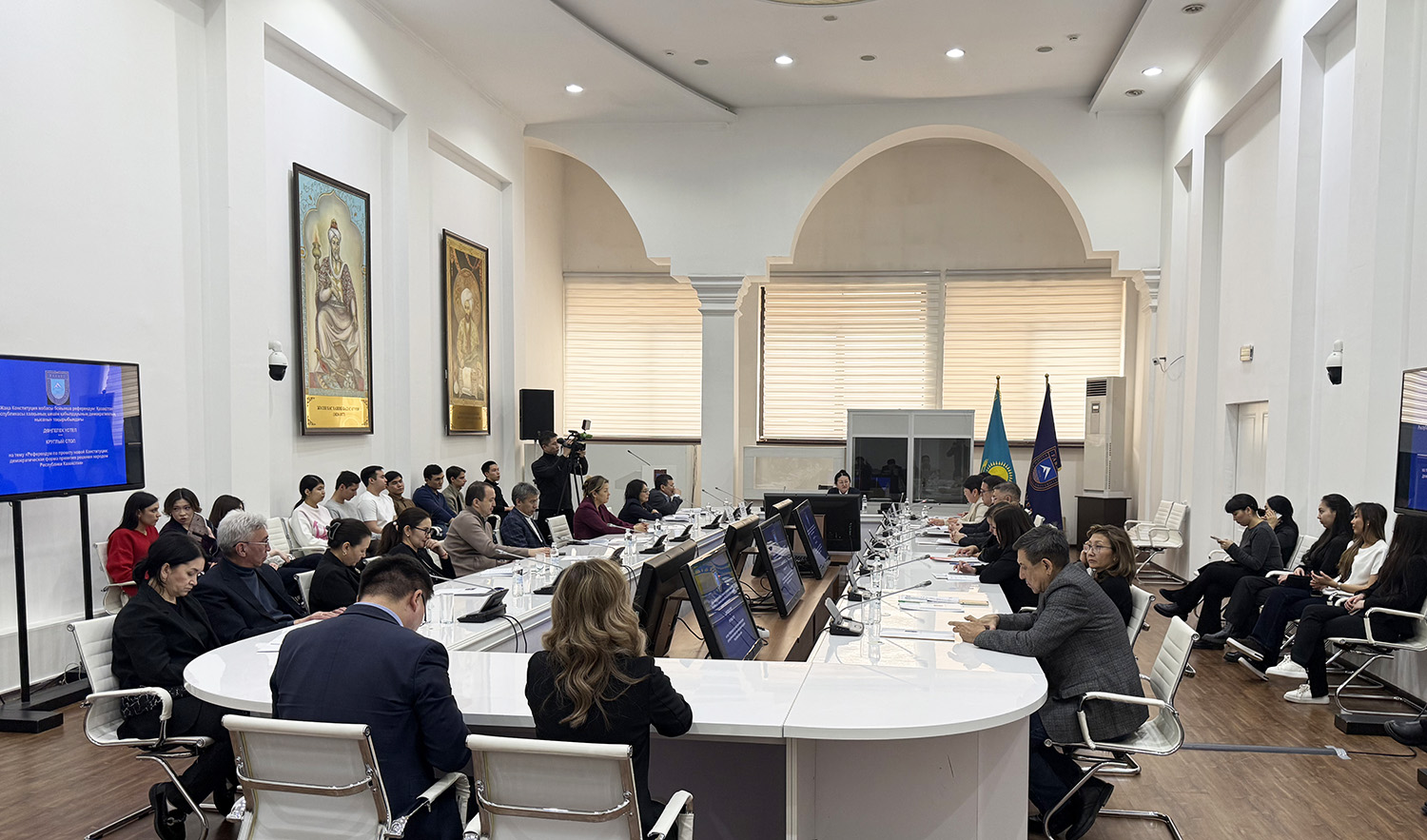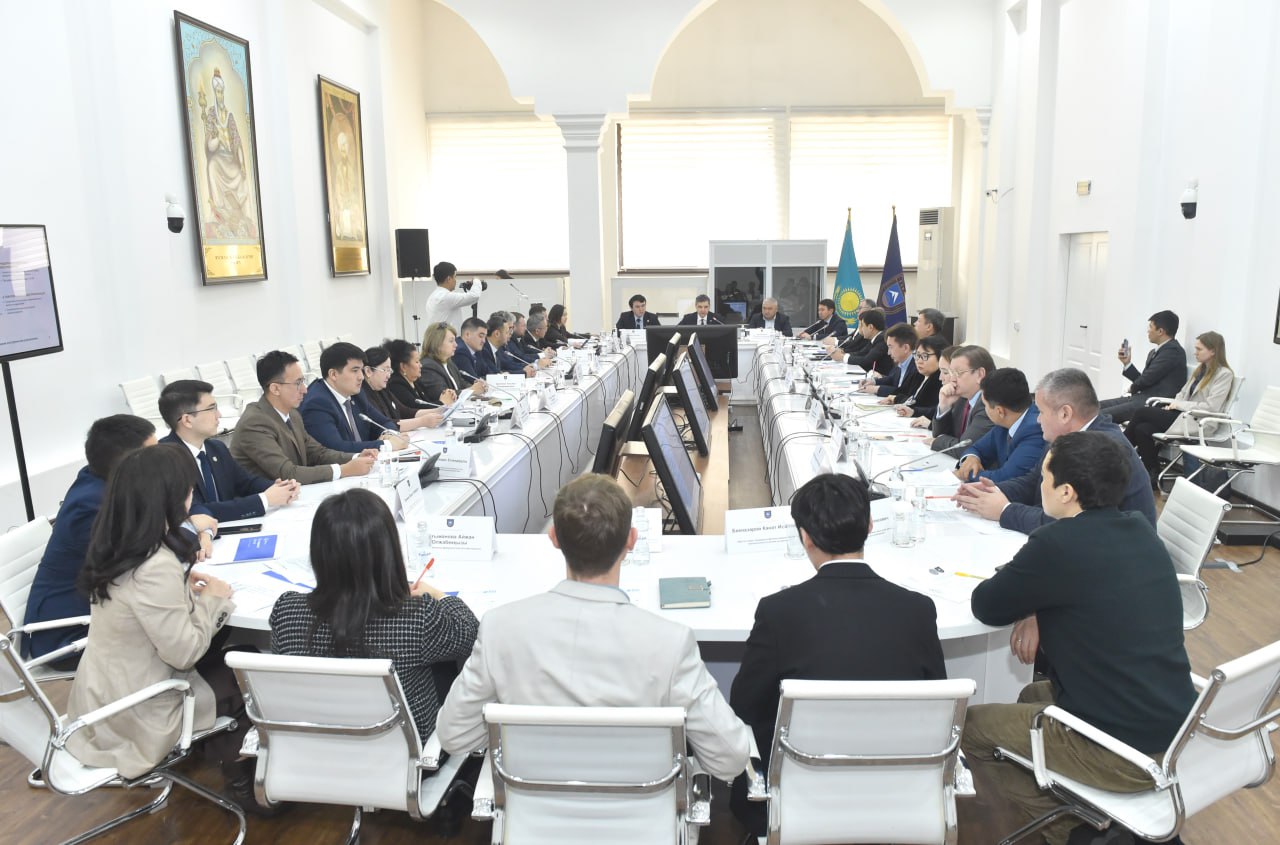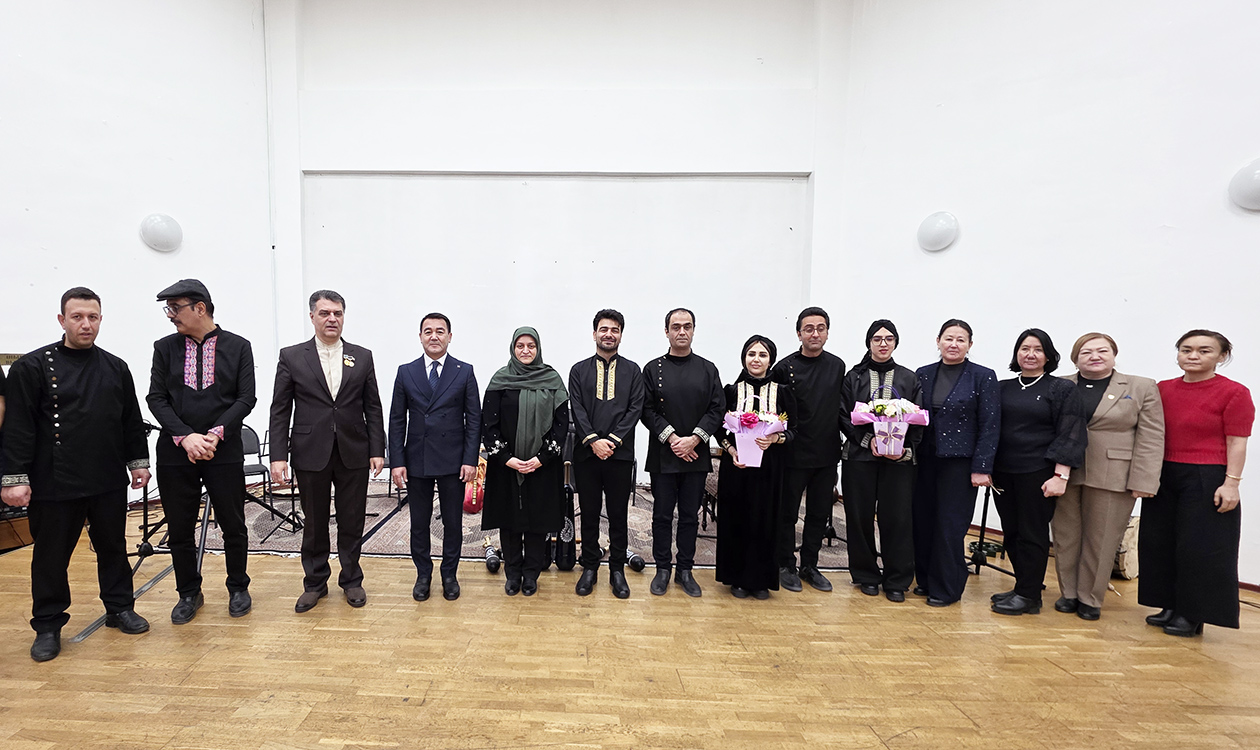- Main
- News
- Model UN at the University: Graduate Students Conduct a Unique Educational Session on Bioethics
Model UN at the University: Graduate Students Conduct a Unique Educational Session on Bioethics
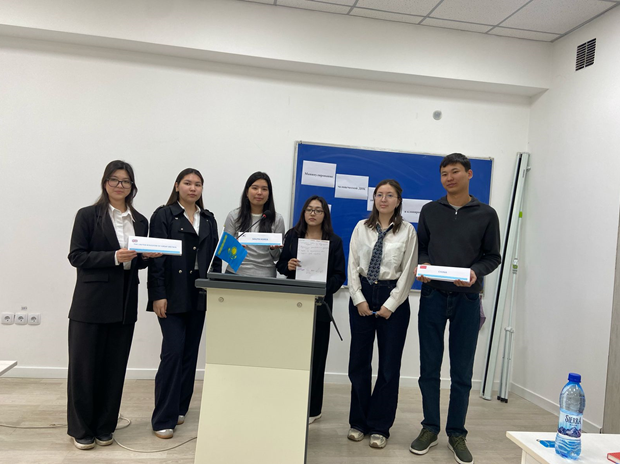
On April 7, 2025, master's students of the 7M01504 – Biology (Pedagogy) program conducted an unusual educational session for first-year students of the 6B05101 – Bioengineering specialty as part of their teaching internship. The event was held in the format of a Model United Nations (Model UN) — a popular interactive educational simulation in which students act as country delegates discussing pressing global issues.
The session focused on a complex and controversial topic: "Manipulation of Human DNA, Designer Babies, and Cloning." Under the guidance of Zhadira Berdimupatovna Ashirova — Acting Associate Professor and Deputy Head of the Department for Scientific-Innovative Work and International Relations — the master's students served as moderators and organizers of the international conference.
Science and Ethics: A Space for Debate and Solutions
The main goal of the event was to develop students' understanding of the ethical boundaries of biotechnology, enhance critical thinking, public speaking, teamwork, and argumentation skills. Participants discussed the feasibility of genetic editing, the permissibility of cloning and designing offspring, and the societal and environmental implications of these technologies.
Each team represented a specific country (USA, China, UK, South Korea, etc.), prepared a national position, and gave a speech. Discussions took place through formal presentations and open debates. Special attention was given to real international legal documents:
- UN Declaration on Human Cloning (2005),
- Oviedo Convention on Human Rights and Biomedicine (1997),
- Universal Declaration on the Human Genome and Human Rights (UNESCO, 1997).
Discussion Results — in a Resolution
The outcome of the session was the collective drafting of a resolution project — a document containing concrete proposals for regulating biotechnology and ensuring ethical oversight in science. This document served not only as a logical conclusion to the debate but also as the result of collective analysis, compromise, and collaboration in an international team.
The Students’ Voice — For Humane Science
Students actively engaged in the process, demonstrating curiosity, analytical thinking, and respectful attitude toward differing opinions. Many noted that this format helped them see the course content from a new perspective, combining knowledge from biology, ethics, and law. "This wasn’t just a class — it was an experience that made us think about the future of science and our responsibility as professionals," said one participant. The event was made possible thanks to the initiative of the graduate students, their creative approach to teaching practice, and the support of the department’s leadership.
Education of the Future — Dialogue, Ethics, and Engagement
Model UN is not just a methodology. It is a living educational space where every student becomes an active participant in global discussions. Events like these help shape the personality of the future researcher and educator — responsible, knowledgeable, and ready to face the ethical challenges of the modern world.
